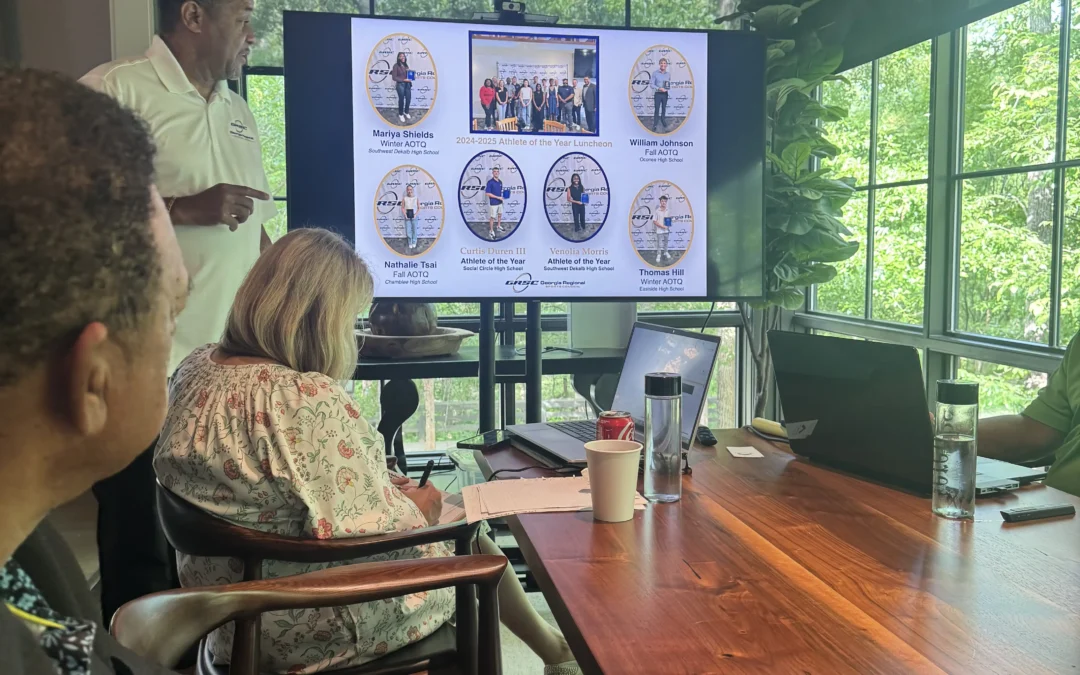A post-secondary education concept for the secondary level — that’s what Georgia State Superintendent John Barge hopes House Bill 186 is for Georgia high schools.
Barge spoke about the bill, which was signed by Gov. Nathan Deal on June 13, at a Career Cluster meeting at the Rockdale Career Academy Wednesday.
“This is not a career/technical initiative. This is not an academic initiative,” Barge said. “This is both.” The bill requires students who enter high school beginning in fall 2012 to choose a career pathway.
Each pathway will consist of the same core courses, but will diverge based on a student’s career interests. The pathways and course plans will be determined by focus groups of educators and business leaders. “We’re not changing standards, we’re not changing rigor. We’re changing the outline,” Barge said.
Barge said the problem many students face is they do not understand all the opportunities available to them. “We must do a better job with letting our children know what it is they want to do — what is it that’s out there,” he said. “Education must be relevant. Children must know why they are learning something and how it applies.”
Barge said the point of the bill was to prepare students for all the different career options available to them. “In our society, a college education has always been synonymous with a four-year degree,” he said. “There are multiple avenues to post-secondary education besides a four -year degree. When we talk about not leaving a child behind, if we don’t recognize and embrace that every child is different, has different interests and passions, and we don’t try to work with those, we end up leaving a lot of them behind.”
Rep. Steve Davis, R–McDonough, a lead author of the bill along with Rep. Randy Nix, R -LaGrange, said he was excited to see the bill presented to educators at the meeting.
“This is so much better than what I originally perceived,” Davis said. “It’s really fascinating to where this could go.” At the heart of the bill, Davis said, is a desire to make education meaningful for students. “These kids, they’re bored — they’re wanting to do things that mean something to them,” he said.
Barge said students are not being taught the skills they need to acquire jobs. “Technology has so changed the face of our world that if we continue to educate our children the same way we’ve educated them for the last 50 or 60 years, and expect them to be prepared for a world that looks completely different than it did 10 years ago, we’re crazy,” he said.
For too long academics have been considered a separate entity from career/technical training, according to Barge. HB 186 hopes to “marry” the two paths.
“Post-secondary and business and industry continue to tell us, ‘They’re not ready. They’re not prepared,’” Barge said. “What we’re talking about in a lot of this is a skills gap. And what is a skills gap? What business and industry need to fill the jobs they have and what we’re graduating students with.”
The clusters and pathways, Barge said, will give students an idea about what is available to them in terms of post-secondary education and employment outside of traditional colleges and universities and white collar jobs.
“We cannot continue to churn out young people with no aspirations and no idea what to do, that go off to post-secondary to spend money to get a degree they have no idea what to do with,” he said. “We can’t look at education in a silo away from economic development. What are we doing to prepare our children for this new economy? We have
to prepare our children to be successful, regardless of how they get there.”
More information about HB 186 can be found at
https://www.legis.ga.gov/legis/2011_12/sum/hb186.htm
This article originally published by Rachel Bunn in the Rockdale News



